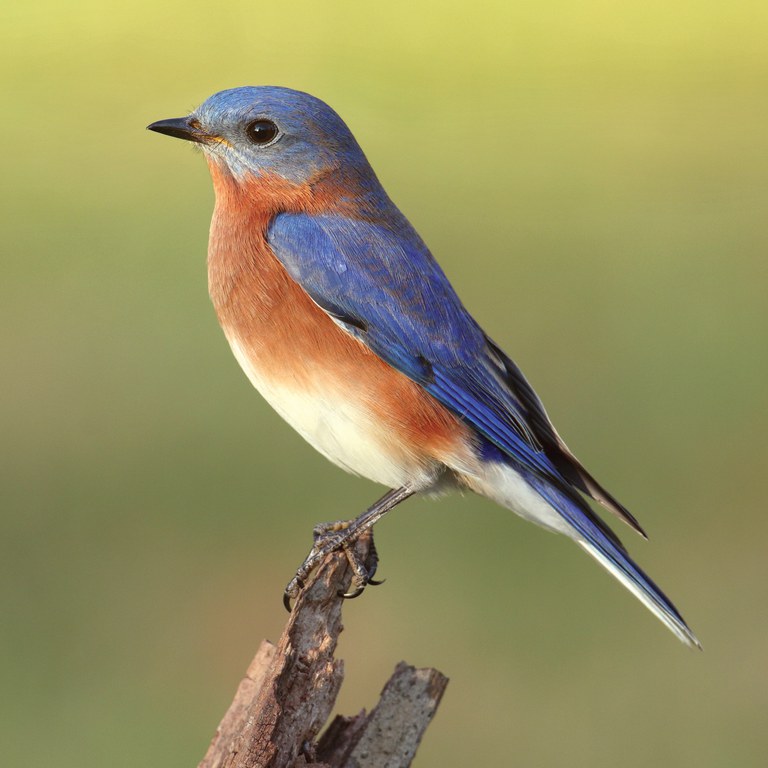Posted: March 2, 2020
Researchers reveal why some songbirds care for the wrong kids.
Why would a male eastern bluebird feed tree swallow babies? Researchers in the college have new insight into this behavior. Called interspecific feeding--when an adult of one species feeds the young of another--the behavior is rare among songbirds, and until now scientists have only speculated on why it occurs.
Like many scientific findings, this one comes from pursuing a larger, unrelated question--in this case, whether noise pollution from Marcellus shale natural gas development is disrupting songbird reproduction and behavior in Pennsylvania's forests. The researchers conducted this work at Penn State's Russell E. Larsen Agricultural Research Center.
"There are numerous hypotheses to explain why interspecific feeding behavior might occur, but in most cases observers can only speculate on the cause because they lack information on the nesting histories of the species involved," said Julian Avery, assistant research professor of wildlife ecology and conservation in the college. "But in this case, we had much more information."
For the industrial noise pollution study, the researchers placed 80 nest boxes in pairs, with paired boxes slightly more than 3 feet apart and about 100 yards between pairs. The researchers subjected 20 of the paired boxes to shale gas compressor station recordings that played 24 hours a day from large speakers.
As part of the study, published in the Wilson Journal of Ornithology, scientists recorded behavioral observations using cameras in the nest boxes.
Lead researcher Danielle Williams, who received a master's degree in wildlife and fisheries science in 2018, recorded the number of feeding events at the boxes by each parent in three-hour observations and analyzed the footage. That's how she learned about the male eastern bluebird repeatedly feeding tree swallow nestlings in box 34B. This nest contained four 10-day-old tree swallow nestlings. The second box in the pair, 34A, contained four eastern bluebird eggs. The bluebird pair occupying box 34A had fledged young from box 34B more than a month before. The tree swallows then took over the box and laid their eggs, forcing the bluebirds to move to box 34A for their second brood.
"We inserted a camera into nest box 34B for an older nestling observation, and during the three-hour observation period, the male eastern bluebird nesting in box 34A was shown providing food to the tree swallow nestlings 29 times," Williams said. "When I looked at the video, I realized that there was a bluebird male in there caring for the young."
The researchers, who noted that many songbirds do not recognize the begging calls or the appearance of their own young, believe the male bluebird, because he had nested in this box earlier in the season, was confused. He made a "place-based decision" to care for the young tree swallows.
"In this case, we think the male--since he was primed to raise nestlings and respond to begging behavior--was duped because he was hearing begging calls and remembered this box," Avery said. "It's especially cool because he is going in and out of the box as the female tree swallow does as well."
The bluebird even perched beside the female tree swallow on the box lid, Avery added. "You'd think at that point the male bluebird would realize the jig was up," he said. "He doesn't seem to have a clue." -
-Jeff Mulhollem
Features
Fostering Forests
Across the United States, forests face unprecedented threats, and scientists in Penn State's College of Agricultural Sciences are conducting novel and complex research to conserve them.
Buzzing With Purpose
Community scientists work to protect Pennsylvania's wild bees
Conservation Reimagined
Exploring new approaches to cope with a changing climate



